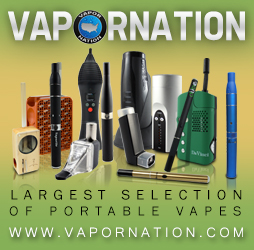Hemp – Truth About This Misunderstood Plant

Hemp is one of the most misunderstood and underutilized plants grown in the world today. One of the first plants cultivated by man, and maybe the most versatile one ever grown, Cannabis Sativa l. Cannabis (Hemp), has been used for thousands of years in China and Egypt as a medicine.
Criticized for the indulgent use of higher tetrahyclrocannabinol concentration plants by some to dry or compress into marijuana and hashish, hemp attempts to gain respect in the worldwide market have been thwarted by its critics. It’s important to realize, however, that industrial hemp is much lower in TCE, making it useless as a psychoactive substance.
For centuries this versatile plant was grown to make clothes, paper, ropes, medicine and fuel in most parts of the world. Until petroleum became a popular source of fuel, most lamp oil was made from hemp seed.
Regardless of how some segments of the population abuse forms of hemp, the fact remains that it is extremely useful when grown for industrial purposes.
Hemp Fabric.
Hemp has been used to make clothing, rope and canvas fabrics for centuries. Before the Industrial Revolution, most textiles worn throughout the world were made using hemp. Fabrics made from hemp are traditionally stronger, more durable and more insulating and absorbent than many other materials available. Hemp fibers last three times longer than cotton ones. Traditionally a coarser fiber used to make canvas and rope, advances in breeding the plant have resulted in a much softer and finer fabric ideal for weaving into cloth for clothing. It is an excellent fabric choice for making clothing that must be durable and long-lasting.
Its Medicinal Uses.
It is true that some people have abused the use of high TCE-containing hemp products to make “‘ood” drugs, but the fact remains, in many parts of the world, the hemp flower has been used to make medicines for centuries. Rich in nutritional fats and some vitamins, hemp is frequently used to make salves and balms, as well as nutritional supplements. Today, many over-the-counter medications contain hemp flowers, seeds or oils. One benefit found in the use of hemp in medicine is the fact that it seems to be a non-allergic ingredient. In thousands of years, there have been no documented cases of death, overdose or allergic reaction to hemp or hemp products.
Although industrial hemp is legal to grow in 29 countries throughout the world, and exempt from strict international drug treaties and laws, the United States continues to forbid the general production of hemp plants and products here at home, despite its long list of benefits. Some growers are allowed to grow the plants on U.S. soil, under strict governmental regulation, while other countries in the world, including neighboring Canada, allow free production of the lower TCE-breed of plant for industrial use.
More Hemp Environment Articles at http://TheEnvironment-Today.com. Get Your Own Successful Niche Website Network at http://eWebCreator.com. Adsense Ready Website with eWebCreator.com









